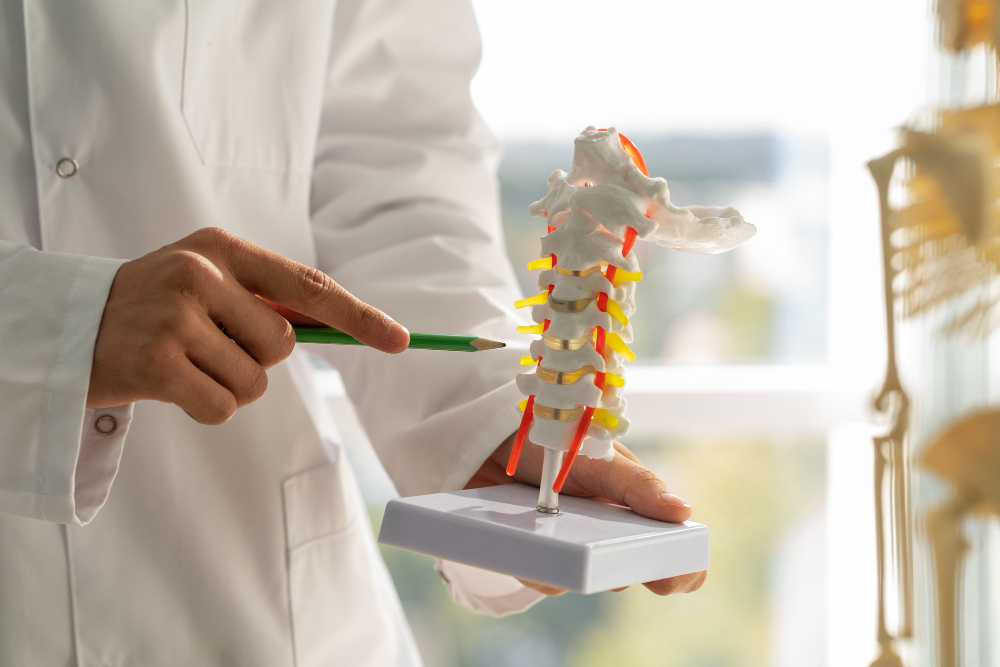healthcare

June 02,2025 • 5 min read
Advanced Pain Management Using Regenerative Medicine: A Biological Approach

Chronic pain continues to be one of the most challenging issues in modern medicine. For millions of patients, traditional interventions—painkillers, steroid injections, and even surgery—offer only temporary relief. In recent years, advanced pain management strategies have shifted toward more sustainable, biological solutions. Leading this shift is regenerative medicine, a discipline that harnesses the body’s natural healing capabilities to treat pain at its source.
This evolution marks a new era in outpatient care—one where long-term healing, reduced dependence on pharmaceuticals, and improved quality of life are becoming realistic expectations for patients and providers alike.
Understanding the Challenge: Chronic Pain and Treatment Gaps
Conventional pain management often focuses on suppressing symptoms rather than addressing underlying causes. Opioid-based medications, while effective for short-term relief, pose significant risks of addiction, tolerance, and diminished function over time. Steroidal injections and anti-inflammatory drugs may reduce discomfort temporarily, but repeated use can weaken tissues and compromise recovery.
These limitations underscore the need for advanced pain management approaches that prioritize biological repair, not just symptom control.
Regenerative Medicine: A New Paradigm in Pain Relief
Regenerative medicine introduces a biological approach to pain therapy. Instead of masking symptoms, this field promotes tissue repair and functional recovery using autologous or donor-derived cellular products. Among the most commonly applied regenerative techniques in pain treatment are:
-
Platelet-Rich Plasma (PRP): Derived from a patient's own blood, PRP concentrates platelets to deliver healing growth factors to injured tissues. In musculoskeletal conditions like tendonitis or ligament sprains, PRP supports cell recruitment and inflammation control.
-
Bone Marrow Aspirate Concentrate (BMAC): Collected from a patient’s hip bone, BMAC contains mesenchymal stem cells (MSCs), platelets, and cytokines. It has shown promise in treating osteoarthritis, cartilage degeneration, and persistent joint pain.
-
Stem Cell-Based Therapies: MSCs and other stem cells used in orthobiologic applications can differentiate into bone, cartilage, and muscle cells, making them ideal for treating degenerative disc disease, joint pain, and soft tissue injuries.
These biologic options align with the objectives of advanced pain management—minimizing long-term drug use, enhancing tissue integrity, and supporting functional recovery.
Key Use Cases in Clinical Pain Therapy
The role of regenerative medicine in treating chronic pain spans multiple conditions:
-
Osteoarthritis: PRP and BMAC have both demonstrated efficacy in reducing pain and improving mobility in weight-bearing joints.
-
Tendon and Ligament Injuries: These treatments are particularly useful for patients with partial tears or chronic tendinopathies resistant to rest or physical therapy.
-
Spinal Conditions: Emerging data support the use of biologics in managing low back pain due to disc degeneration, especially when paired with image-guided delivery systems.
For pain specialists and outpatient clinics, these techniques represent a non-surgical pathway to better patient outcomes.
Biological Healing vs. Pharmaceutical Control
One of the biggest distinctions between regenerative approaches and traditional therapies lies in intent. Pharmaceuticals are designed to interrupt pain signals. Regenerative medicine aims to heal the tissue causing the pain. This biological model offers several key benefits:
-
Reduced Long-Term Medication Use: Fewer prescriptions mean a lower risk of dependency and side effects.
-
Improved Patient Function: As tissues heal, strength and mobility are naturally restored.
-
Fewer Repeat Procedures: When pain is treated at the root, patients are less likely to need ongoing interventions.
This approach allows clinics to offer durable, personalized treatments that resonate with patients seeking natural alternatives to long-term drug use.
Integration into Modern Pain Management Protocols
Successful implementation of advanced pain management strategies involves more than just introducing new treatments—it requires updated protocols and interdisciplinary collaboration. Clinics are increasingly integrating regenerative therapies into broader pain management programs that may also include:
-
Ultrasound-guided injections for precision
-
Physical therapy tailored to biologic recovery phases
-
Diagnostic imaging to track progress
-
Patient education for long-term lifestyle change
The goal is to create a comprehensive care model that treats pain holistically and sustainably.
Empowering Clinics Through Innovation
As the evidence supporting regenerative medicine grows, clinic owners and specialists are beginning to invest in the equipment, training, and protocols necessary to deliver these services. Technologies like closed-loop centrifuge systems, stem cell isolation kits, and PRP preparation devices are becoming essential tools in outpatient care.
This trend not only aligns with modern clinical demands but also helps providers differentiate their practices in a competitive market focused on outcomes.
Conclusion: A Future Rooted in Biology
The future of advanced pain management lies in its ability to heal, not just relieve. With regenerative medicine at the forefront, pain specialists now have tools that support recovery at the cellular level. These therapies reduce the burden of chronic conditions, empower patients to return to daily activities, and redefine success in pain treatment.
Accretion Portal is proud to support this evolution by offering the tools, kits, and systems that make biological pain therapy possible. From PRP kits to stem cell processing equipment, we provide clinics with everything they need to integrate regenerative healing into their practice. Explore our full range of offerings at Accretion Portal and take the next step toward modern, patient-centered pain relief.
Accretion Portal Details
User Profile
- Full name
- Accretion Portal
- Email address
- seoexperts190@gmail.com
- Join Date
- 2025-05-27
- State
- City
- Pincode
- Address
- Follow us on Facebook
- Follow us on Twitter
- Website Name
- Bio